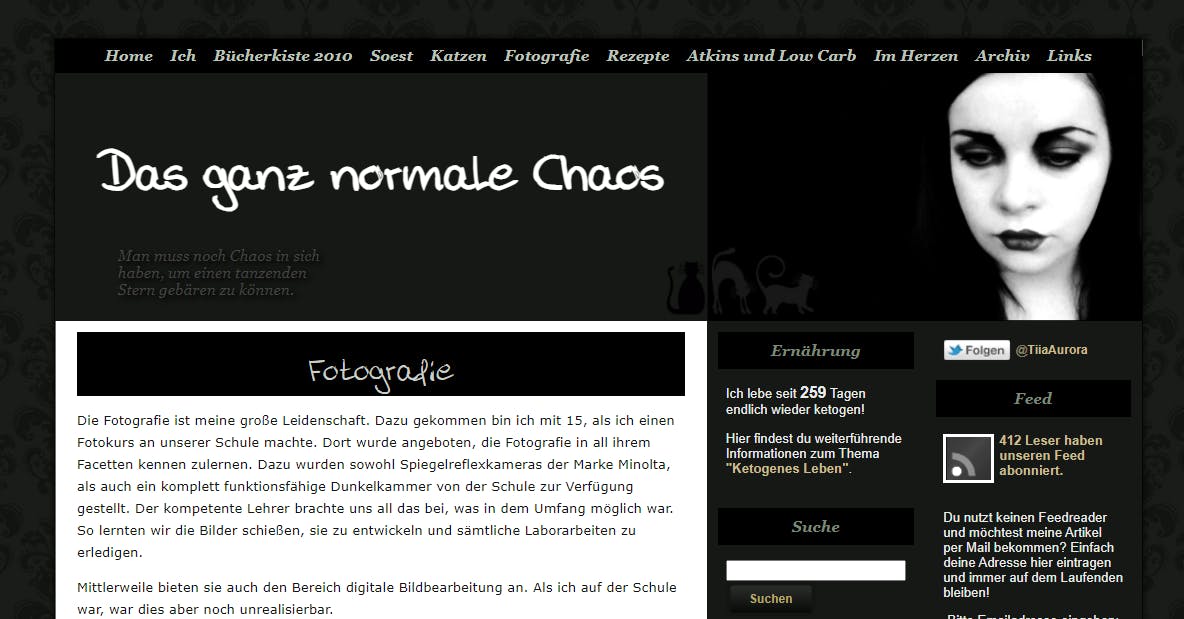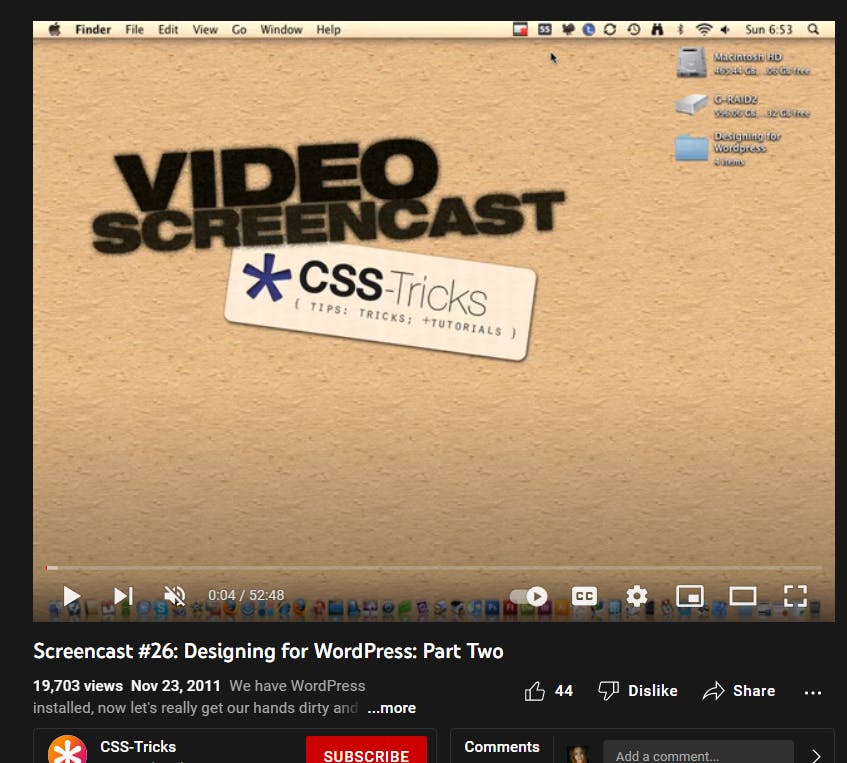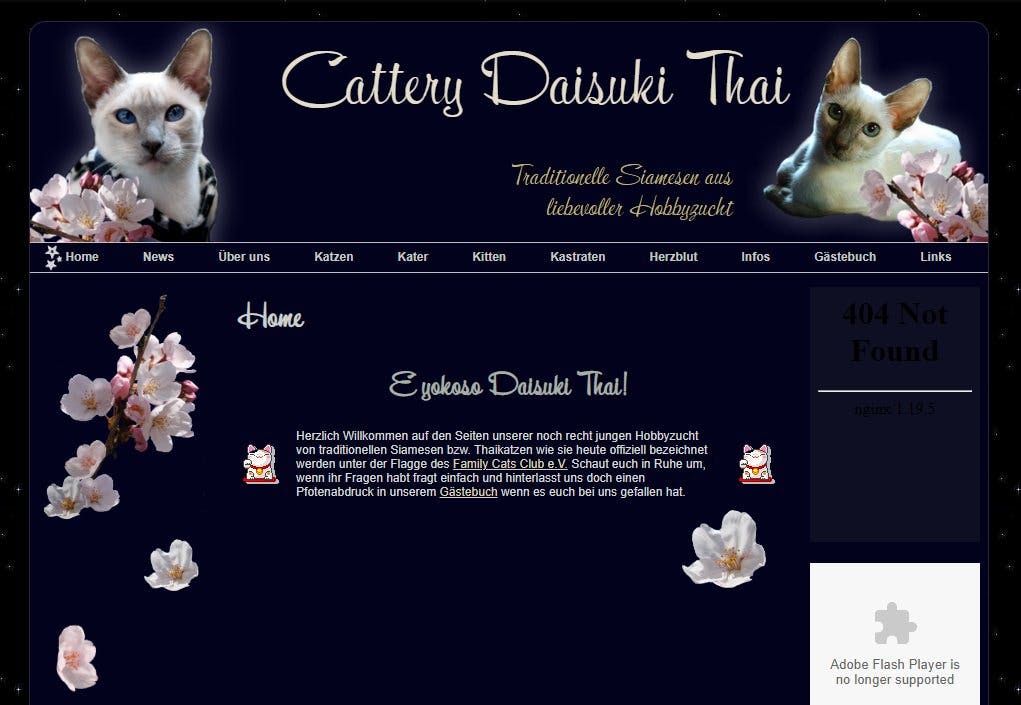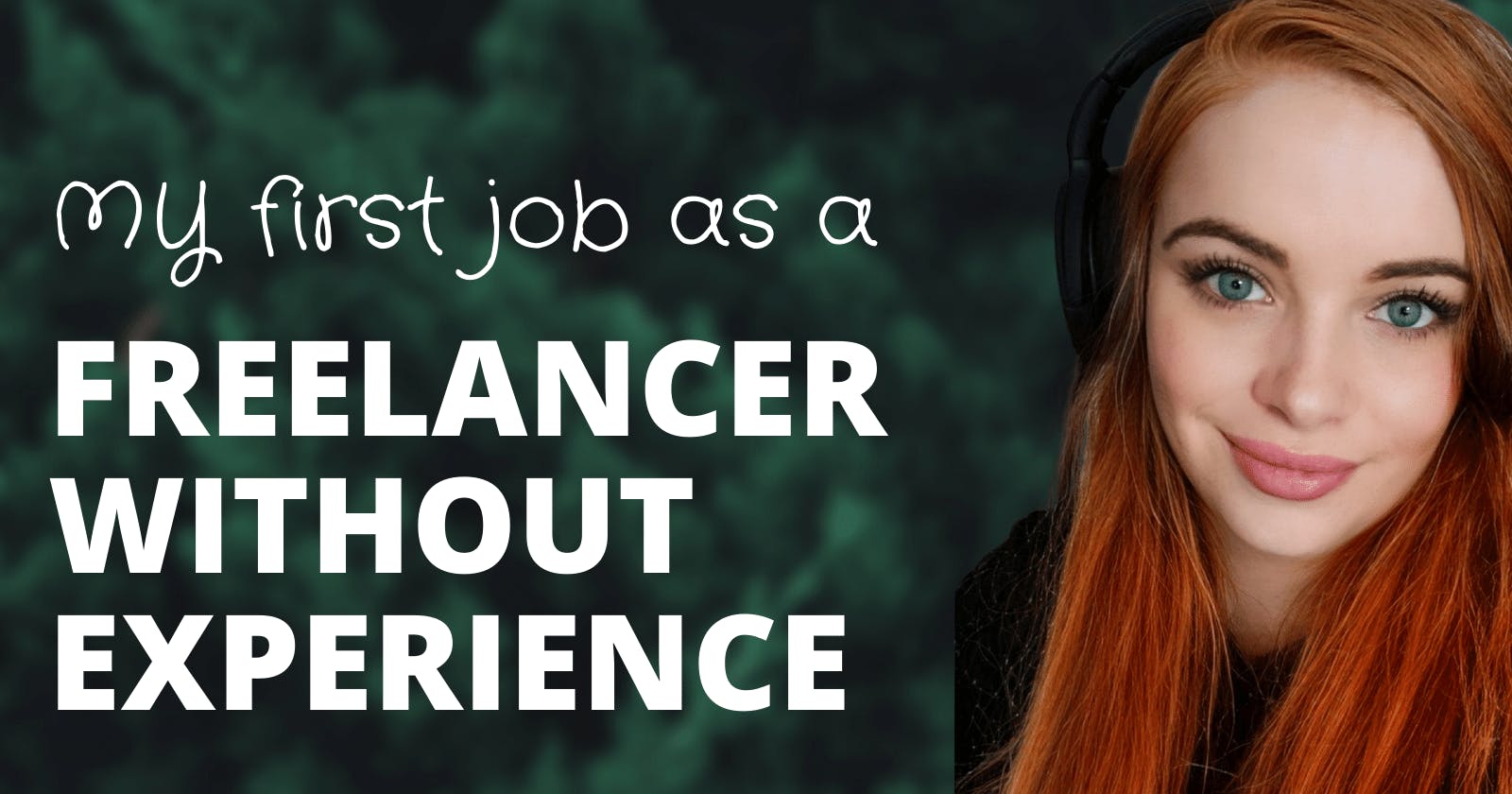How I got my first freelancing gig as a developer and how it changed my career unplanned
My career as a freelancer did not start with my very first job. Some count that as the part of when their journey starts. My career started as a user of the products I worked with afterwards. In the peak of the new blogging hype in 2008, I had 3 different blogs that all were set up to generate passive income and made it possible for me to do this full-time while having a lot of free time on my hands. This free time I used for self-education. My brain never stops. If I am not good at something I will keep learning until I am good enough.
 My blog 2010
My blog 2010
I was unhappy with my blog because I had set up my blogs with standard themes, maybe a little edited—mainly the graphics. I was annoyed that so many other blogs used the same themes, that my blog had no real uniqueness to it.
So I took it to YouTube—A platform fairly fresh still. And I looked for tutorials on how to make my own blog themes to finally have something like a brand identity. I did find a 4 video long tutorial that when through 4 hours of explaining CSS from scratch. The same night I designed and built my first blog theme, and it would be the thing people would recognize straight away.
 The actual tutorial I followed
The actual tutorial I followed
You learn for life
Little did I know that this afternoon of teaching myself basic CSS and HTML knowledge would change the years following. A few weeks later an acquaintance of mine emailed me about a thing he wanted to have changed in his blog. He asked if I could do it, and he would also pay for it.
I looked at the issue, and it was something I had to fix in my own blog as well, so the solution to his problem was still fresh enough in my memory to fix it within a few minutes. I didn't expect payment because it was just a few lines of new CSS and some changes to existing CSS, but he insisted of paying me and gave me €25 for 5 minutes of effective work. I was baffled.
The big website make-over
This acquaintance—still impressed with my work—worked as a Social Media Coach for creators, companies, and artists, that did not have any online representation yet. Some still had some dusty and never updated websites from the 90s—an iframe-nightmare.
A few weeks later he messages me again and asked me if I want to take over work from him. He wanted to offer more services and wanted to outsource some work to me. My job from then on was to take those crusty 90s websites and turn them into websites based on WordPress. My job was to update those designs, so they fit into the just started web2.0. I had to prepare the WordPress backend for the customer to be able to update contents themselves. I also filled the pages with the pre-existing content that was on their old website. Then I set up the SEO and wrote documentation for them to look everything up they need to know.
I had little companies as customer, one wonderful elderly lady who was far past her 80s and just wanted to be found online to show her paintings and artwork. She was euphoric to have a woman working on the website. Not once was a customer unhappy with my work—but they would often send recommendations to befriended companies and brands to hire me.
The developer work and the passive income from my blogs made it possible for me to have a decent income considering none of the paths I have chosen was something I had learned before. A career change out of the mood to learn something new on one autumn afternoon was all it needed. Everything happens for a reason, considering I am now here almost 12 years later.
Things I have learned when I started freelancing
- Know your worth! First I felt uncomfortable asking for money for my work. Since all I did was an online course in creating unique themes and had several years of personal experience with blogs—it felt like I ask for money for a favour.
- If you undercharge, people will think your work is bad, and therefore you can't ask for more. Being cheaper than the others hurts your reputation.
- Recommendations are EVERYTHING for a freelancer. That was far more successful than me advertising my work. Most of the time I was booked out because people referred me.
- inform yourself about any legal requirements of your work. What taxes do you have to pay? Do you have to found a company? Which paperwork needs to be kept? That saves you from a lot of headache later.
Why I chose to freelance over employment?
I have worked in employment and I have worked in my self-employment and I absolutely prefer working on my own for myself. Especially in the smaller sector where you deal with private people or private companies, people prefer working with real people over agencies. I also had the possibility to change what I charge based on the company itself. I did not have a per hour price but per project. For non-profits, I would charge the bare minimum and as soon as a bigger good situated company would ask for my help, their payment would even it out.
Being able to take those customers like non-profits, that usually no one would take did not only help them, but it also looked good on a portfolio site and would bring a lot of eyes on my work.
Working for an agency—this would have been impossible because I wouldn't have seen these kinds of offers to begin with.
But for you the situation can be different. Freelancing requires a lot of willpower to go through your work without pressure from another instance. You need to motivate yourself every morning to wake up on time and get your planned work done. Sometimes that can be tricky.
You also need to be able to handle the alone responsibility over your livelihood. Your work decides over if you can pay your bills or not. If you don't work, you might not. But if you work responsible and constant, then you can make a very good living.
Your Portfolio
 One of the first websites I got commissioned for 2010. The topic was water, night sky, cherry bloom and Japan. Dark Mode was important because the website was meant to look a little more upper class. WordPress was under the hood, helping the cat breeder to maintain her content easily.
One of the first websites I got commissioned for 2010. The topic was water, night sky, cherry bloom and Japan. Dark Mode was important because the website was meant to look a little more upper class. WordPress was under the hood, helping the cat breeder to maintain her content easily.
It probably looks a little dated for 2022, but 2010 it got her a lot of compliments and me a lot of follow-up gigs from the cat breeder community. Who all paid very well.
These days a Portfolio is more essential than ever. Showing your work and your skills can turn a Google Search into a customer. I have some really basic advice for your portfolio, since I see many peoples portfolios are working against them instead of for them.
- Use every little piece of work as reference. Very often customers want to see your previous work. Make sure that your portfolio has a lot of different styles, so they don't chose you for the previous customers design choice but for your knowledge to translate customers wishes.
- If your portfolio doesn't have a lot to offer, just create mock-ups. Have fun and show what you are capable of.
- Have examples for every service you offer. Otherwise, it will get lost in the list of Skills.
- Write a few words to each example—What is it for, what were the decisions you made selecting that design, which feature stands out.
My biggest advice is one general point, don't let the imposter syndrome get to you. We regularly say “No” to opportunities because we feel that we don't fit in. We feel like we are not qualified enough and people will find out. But keep in mind—You grow with your tasks. Every new gig, every new job teaches you something new. And you can also expect everyone else around you feel the same. Be brave to say yes to opportunities because they could change your life.

